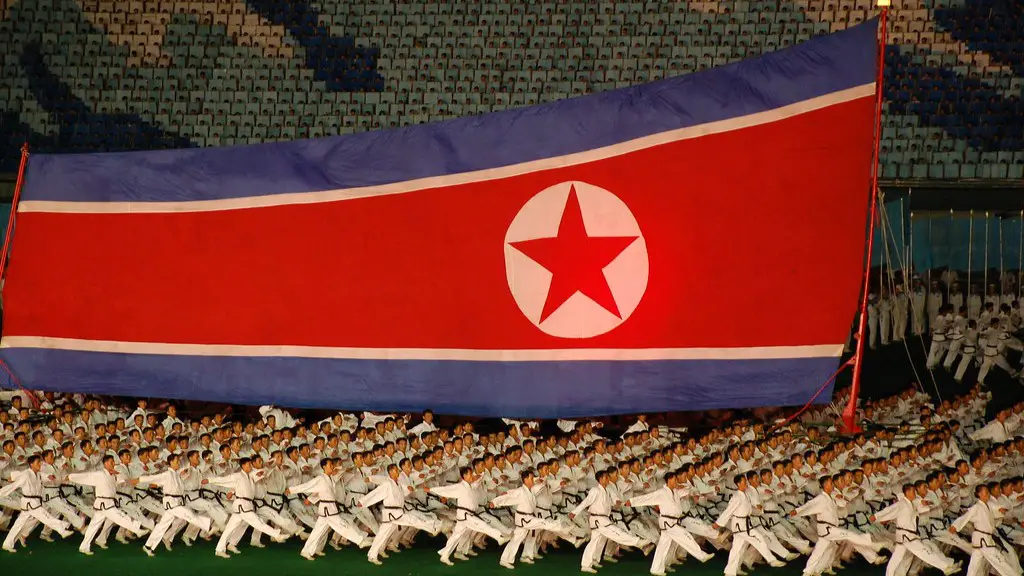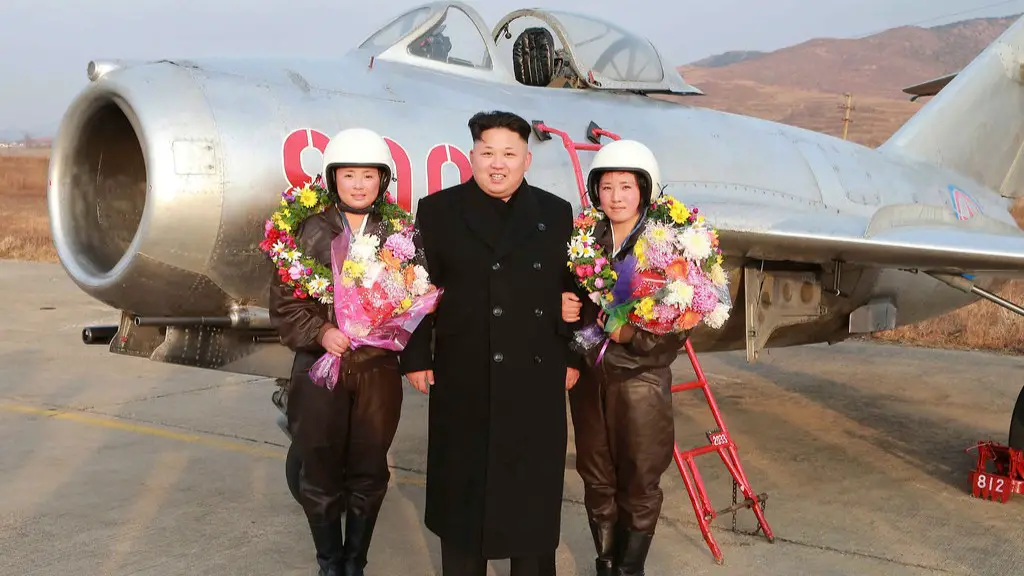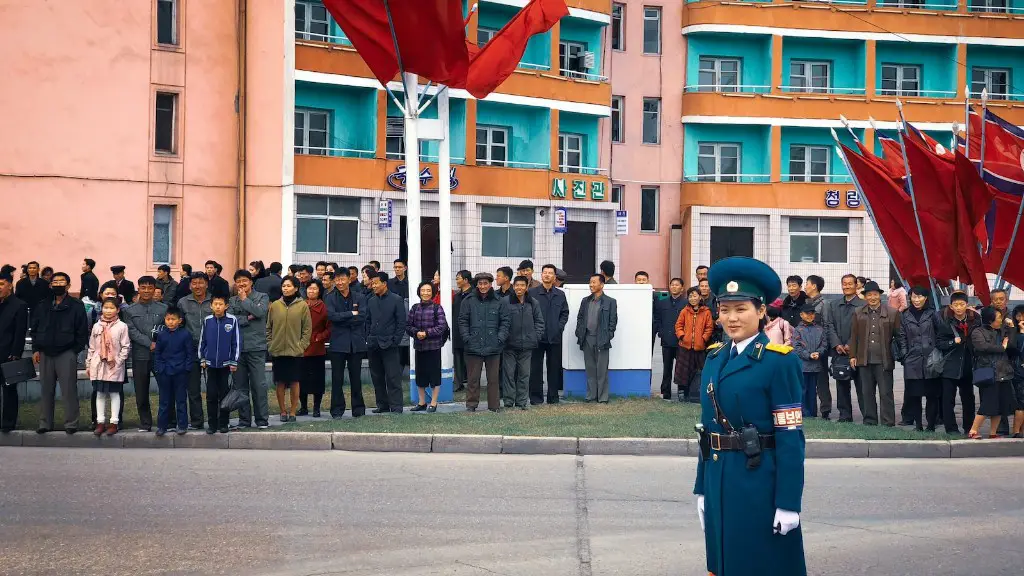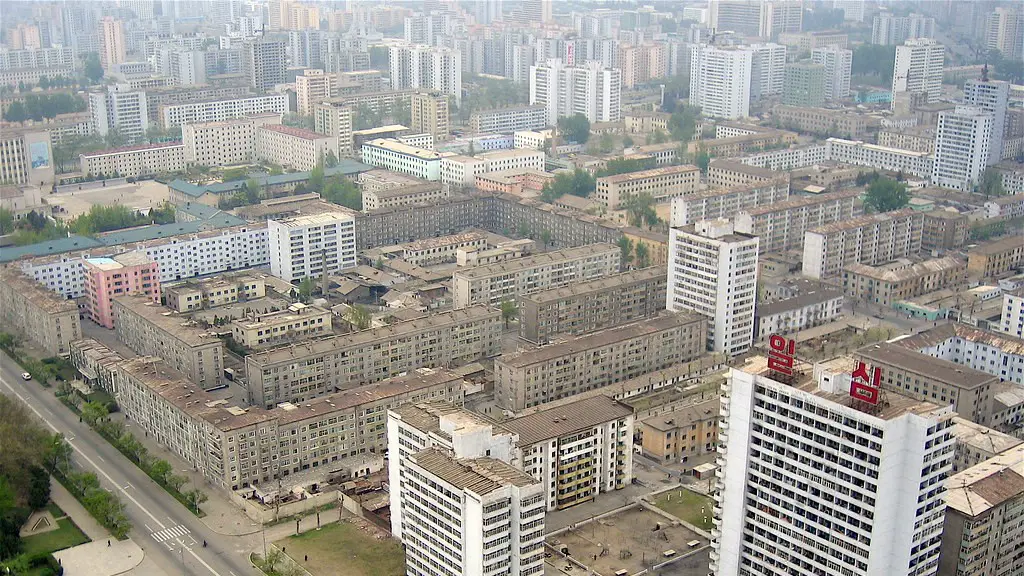Are We Gonna Get Nuked By North Korea?
North Korea has caused a lot of global tension and fear since the early 2000s, primarily arising from their nuclear weapons program. North Korea has conducted several nuclear tests and regularly threatens to use their nuclear capabilities against the United States and other Western countries, although such a move may be seen as suicidal for the nation’s leadership. Nevertheless, a real prospect of nuclear war with North Korea remains very much alive, and there is a need for enhanced safety and security measures and strategies.
The US has deployed aircraft carriers, strategic bombers, and other forces to conduct military exercises on the Korean peninsula and beyond, with the aim of demonstrating its commitment to protect South Korea and Japan from a North Korean or other attack. The US has also pushed China, a key ally of North Korea, to pressure the regime to abandon its nuclear weapon program and pursue a more peaceful path. South Korea, the main target of any attack, has also increased its defensive capabilities.
North Korea’s nuclear program poses a serious threat to world peace and security. The regime has conducted over a dozen nuclear tests, and its weapon capabilities have increased steadily. The regime has also tested missiles capable of reaching the US mainland, and has threatened to use them against the country if the US does not cease its military buildup in the region. Despite heavy sanctions, North Korea has still managed to acquire materials for its nuclear program, prompting fears of a possible nuclear conflict.
Experts in the US are concerned that North Korea may eventually follow through on its threats to use its nuclear capabilities against the US, either directly or through a proxy. North Korea has an estimated 10 to 15 warheads, which is a substantial number for a small nation. The US would likely be the primary target of such an attack, along with South Korea and Japan. The prospect of a nuclear war with North Korea is a real concern for the US and international community, and various steps are being taken to prevent such a conflict.
The US is pushing China to pressure North Korea into abandoning its nuclear program and has also entered negotiations with the regime in the hope of reaching a peaceful settlement. The US has made it explicitly clear to North Korea that any attempt to use its nuclear weapons will be met with a devastating response from the US and its allies. South Korea is also bolstering its own military capabilities and is developing an advanced missile defense system, known as the Korea-U.S. Combined Missile Defense System, in case of any attack.
Nevertheless, despite all of these efforts, the risk of a nuclear conflict with North Korea remains real, and the international community must remain vigilant. North Korea’s volatile regime has proven in the past that it is willing to take extreme measures, and the US must be prepared to respond appropriately to any aggression. The risk of a nuclear conflict may be low, but the consequences would be catastrophic, and therefore all steps must be taken to prevent it.
International Responses
The international community has largely united against North Korea’s nuclear threats, as no country wants to see a nuclear war. The United Nations has imposed strong economic sanctions against North Korea in an effort to pressure it to denuclearize, and many countries have also cut diplomatic ties with North Korea in an attempt to isolate the regime. Most recently, the U.S. led a successful campaign at the UN Security Council to increase economic sanctions against North Korea, in an attempt to push the regime to abandon its nuclear program.
The US has worked hard to build up a unified international front against North Korea, but it has not been able to convince China, a key ally of the regime, to join the effort. China is the largest trading partner of North Korea and provides the regime with economic and political support, making it a key partner in any attempt to convince North Korea to give up its nuclear capabilities. Until China takes a more active role, it is unlikely that North Korea will be pressured into denuclearization.
Russia has also resisted pressure to join the international sanctions against North Korea. The country has close economic and political ties with North Korea, and has supported the regime in the UN Security Council on several occasions. Russia has also refused to take part in the US-led military exercises on the Korean peninsula, instead opting to conduct its own, much more limited exercises.
While the international community is unified in its condemnation of North Korea’s nuclear program, there is still much disagreement about how to deal with the regime. China and Russia have resisted international pressure to join the sanctions, and are unlikely to do so unless the situation escalates significantly. Without the full commitment of these two countries, the US and its allies face an uphill battle in trying to denuclearize North Korea.
Risk Assessment
Although North Korea has demonstrated its willingness to use its nuclear capabilities, it is unlikely that the regime would actually launch a nuclear attack against the US or its allies. Such a move would likely lead to devastating retaliation, and would most certainly spell the end of Kim Jong-un’s regime. In addition, North Korea’s military capabilities are currently not on par with those of the US and its allies, and a nuclear war would be a suicidal move for the regime.
The US understands the risk, and is working to prevent a nuclear conflict through negotiations and diplomacy. The US has recently engaged in direct talks with North Korea and is hopeful that the regime will ultimately recognize the risks of a nuclear conflict and choose to denuclearize. However, the US must also remain prepared to respond in the event that all diplomatic efforts fail.
Despite the risk assessment and the various efforts to ensure that North Korea does not use its nuclear weapons against the US, the situation is still highly volatile. The regime is unpredictable, and its actions must be monitored closely. The US must remain vigilant and continue its efforts to find a peaceful resolution to the situation. As of now, the risk of a nuclear conflict with North Korea is low, but there is no room for complacency.
Regional Impact
A possible nuclear conflict between North Korea and the US would have devastating consequences, not just for North Korea and the US, but for the entire Korean peninsula and wider region. South Korea would be one of the first targets of any North Korean attack on US forces, and would likely suffer enormous losses in terms of both life and property. Japan, which hosts US forces, could also be targeted by North Korean missiles.
The economic fallout of a nuclear conflict would be felt far beyond the Korean peninsula. The entire region could suffer economic damage as production and trade come to a halt, and global markets could also be affected. Such a conflict would also lead to an increase in geopolitical tensions, and could potentially ignite a wider conflict in the region.
In addition, a nuclear conflict in the Korean peninsula would put a huge strain on the US’s diplomatic and military capabilities. The US would have to devote large resources to contain the conflict, and it may not have the capacity to respond effectively to crises elsewhere in the world. This could lead to a shift in the global balance of power, with other powers gaining an advantage over the US.
It is clear that a possible nuclear conflict with North Korea would have far-reaching consequences, and must be avoided at all costs. The US and its allies must remain vigilant and take whatever steps are necessary to ensure that North Korea does not use its nuclear weapons against the US or its allies.
Political Implications
The consequences of a nuclear conflict with North Korea would go beyond the destruction and destruction of lives, as the political implications would be far-reaching. A war between North Korea and the US would likely strengthen the rule of Kim Jong-un, as he could use the conflict to further consolidate his power and discourage dissidents from challenging his rule.
The US would also face serious political ramifications if it enters into a conflict with North Korea. President Trump has made it clear that he does not want to use force to deal with the North Korea situation, and a nuclear conflict would undermine his efforts to find a diplomatic solution to the crisis. The US would also face international criticism for escalating a nuclear conflict, and it could lose significant leverage and prestige in the global arena.
The events in the Korean peninsula could also have implications beyond the region. A nuclear conflict could undermine global efforts to promote peace, and could lead to an increase in mistrust and hostility between states and regions. It could also lead to a shift in the global balance of power, as other countries gain an advantage over the US in terms of military and economic strength.
As such, it is clear that a nuclear conflict between North Korea and the US would have considerable political implications, and all steps must be taken to prevent such an event from occurring. The US must continue its diplomatic efforts to find a peaceful resolution to the crisis, and must also remain prepared to respond appropriately in the event that all diplomatic efforts fail.
Economic Implications
In addition to the political and security implications of a nuclear conflict, there would also be severe economic repercussions. A nuclear war in the Korean peninsula could drastically disrupt global trade, and could even lead to a global recession. The economic damage would not be limited to North Korea and the US, but would affect the economies of neighbouring countries, as well as those of the entire region and the world.
South Korea, the most likely target of any North Korean attack, would suffer economic devastation in the event of a nuclear war. The country’s economy would be severely disrupted and its industry and infrastructure destroyed. Japan would also suffer economically, as its proximity to the Korean peninsula would make it a target for possible North Korean attacks, and its manufacturing sector could be heavily impacted.
The global economy would also suffer due to the disruption of trade and financial flows. International markets could see a significant drop in demand, and stock prices could plunge. Global investments could shrink, and some major currencies could depreciate in value. The world’s largest economies, including the US and China, would also take major hits, as global demand for their products and services falls.
It is clear that a potential nuclear conflict between North Korea and the US would have serious economic consequences, and must be avoided at all costs. The US and its allies must remain vigilant and take whatever steps are necessary to ensure that North Korea does not use its nuclear weapons against the US or its allies.





